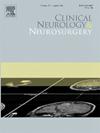简要国际认知评估多发性硬化症(BICAMS):伊朗规范的价值观和相关的认知功能
IF 1.6
4区 医学
Q3 CLINICAL NEUROLOGY
引用次数: 0
摘要
摘要国际多发性硬化症认知评估(BICAMS)是一种简便、准确的多发性硬化症(MS)患者认知评估工具。虽然以前在波斯语中得到验证,但这些测试缺乏既定的规范价值。本研究旨在确定伊朗人口基于回归的正常值,并探讨与BICAMS得分相关的因素。材料和方法按年龄、性别和受教育年限分组匹配的sm患者和健康个体(HI)进行BICAMS评估,包括符号数字模态测试(SDMT)、简短视觉记忆测试(BVMT-R)和加州语言学习测试(CVLT-II)。采用贝克抑郁快速量表(BDI-FS)进行抑郁评估。结果获得MS患者68例,HI患者68例。HI的平均原始评分如下:SDMT: 51.24 ± 9.77;CVLT-II: 52.04 ± 8.06;BVMT-R: 27.70 ± 4.96。MS组在SDMT和BVMT测试上的得分明显较差,但在CVLT-II上没有。规范性数据是通过使用多元回归模型将原始分数转换为缩放分数来开发的。根据模型,30例(44.1% %)患者在至少一个领域存在认知障碍(CI)。结论本研究引入了伊朗首个BICAMS标准值。使用规范的数据可以提高在研究和临床实践中评估认知功能的实用性和准确性。本文章由计算机程序翻译,如有差异,请以英文原文为准。
Brief International Cognitive Assessment for Multiple Sclerosis (BICAMS): Iranian normative values and correlates of cognitive function
Background
The Brief International Cognitive Assessment for Multiple Sclerosis (BICAMS) is an easy instrument for accurate cognitive assessment in multiple sclerosis (MS) patients. Although previously validated in Persian, the tests lack established normative values. This study aims to determine regression-based normative values for the Iranian population and explore the factors associated with BICAMS scores.
Materials and methods
MS patients and healthy individuals (HI) who were group-matched by age, sex, and education years underwent BICAMS assessment consisting of the Symbol Digit Modalities Test (SDMT), Brief Visual Memory Test (BVMT-R), and the California Verbal Learning Test (CVLT-II). Depression was assessed with Beck Depression Inventory-Fast Screen (BDI-FS) questionnaire.
Results
We obtained 68 MS patients and 68 HI samples. The mean raw scores for HI were as follows: SDMT: 51.24 ± 9.77; CVLT-II: 52.04 ± 8.06; and BVMT-R: 27.70 ± 4.96. The MS group scored significantly worse on the SDMT and BVMT tests, but not on the CVLT-II. Normative data were developed by converting raw scores to scaled scores using multivariate regression models. According to the models, 30 (44.1 %) of patients had cognitive impairment (CI) in at least one domain.
Conclusions
Our study introduced the first Iranian normative values for BICAMS. Using normative data can enhance utility and precision in assessing cognitive function in both research and clinical practice.
求助全文
通过发布文献求助,成功后即可免费获取论文全文。
去求助
来源期刊

Clinical Neurology and Neurosurgery
医学-临床神经学
CiteScore
3.70
自引率
5.30%
发文量
358
审稿时长
46 days
期刊介绍:
Clinical Neurology and Neurosurgery is devoted to publishing papers and reports on the clinical aspects of neurology and neurosurgery. It is an international forum for papers of high scientific standard that are of interest to Neurologists and Neurosurgeons world-wide.
 求助内容:
求助内容: 应助结果提醒方式:
应助结果提醒方式:


